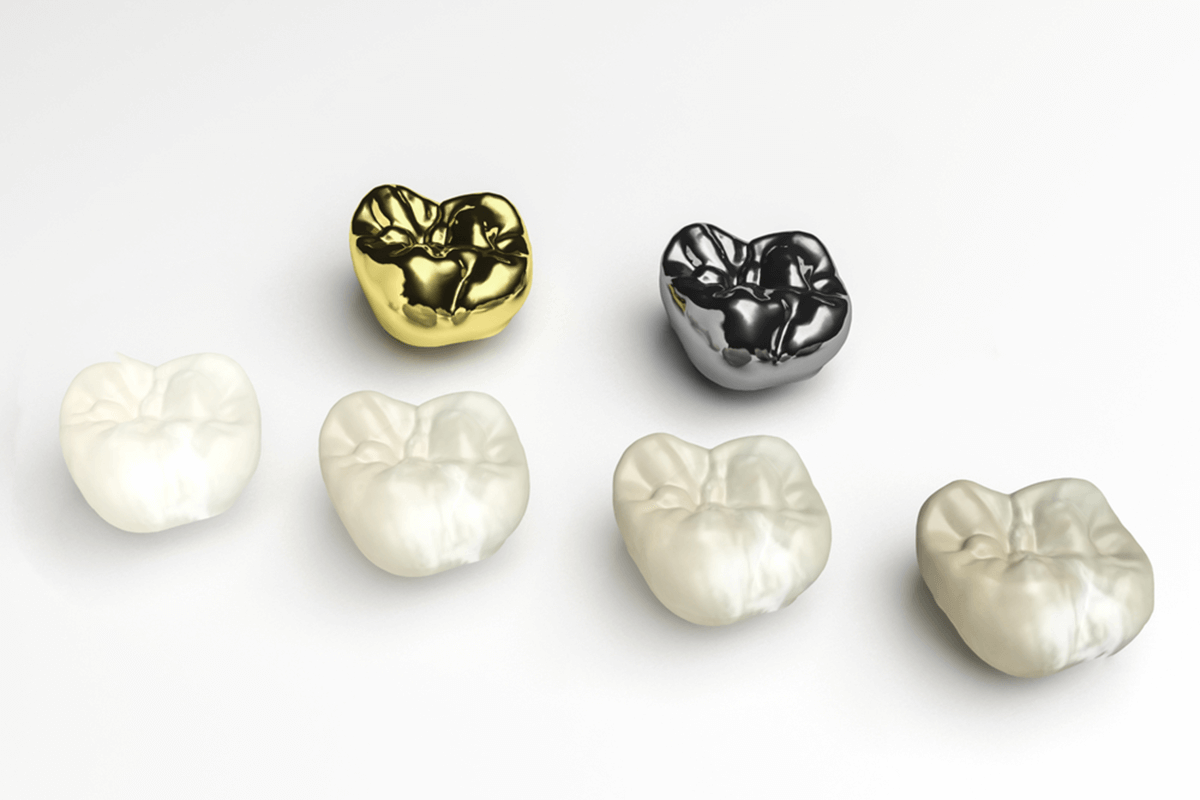Dentists use dental crowns in York to protect and restore weak or damaged teeth, to support dental bridges, and to perfect the colour and appearance of flawed teeth.
Dental crowns are hollow, thimble-like caps that slip over your entire tooth and cover that tooth all the way from the biting surface at the top of the tooth to the line of your gums. If a dentist near you has mentioned crowns as a possible alternative for achieving your restorative or cosmetic dentistry needs or goals, here’s an outline of information you should know and consider.
What are crowns made of?
There are five different types of materials used to create dental crowns near you. Each material offers different advantages that make them appropriate for particular locations or needs.
Metals such as gold, palladium, nickel and chromium are a good option for teeth that are not readily visible because of their metallic colour. Metal crowns offer the advantage of rarely chipping or breaking and being able to withstand the most significant biting and chewing forces without wearing down quickly.
Porcelain-fused-to-metal (PFM) crowns are a good option for front and back teeth because the porcelain material can be crafted to match the colour, texture and sheen of your own natural teeth. One disadvantage of PFM crowns is the risk that the metal underneath the porcelain finish may show through that porcelain as a dark line. Another downside is the risk that the porcelain may chip or break from the metal structure below.
All-resin crowns are the least expensive option, but that lesser cost comes with a disadvantage. All-resin crowns wear down more quickly than crowns made of other materials. All-resin crowns break more often than PFC crowns.
Fully ceramic or porcelain crowns contain no metal. This makes them a superior option for people who may be allergic to allergies. Fully ceramic and porcelain crowns are the best option for ensuring a precise match to the colour of your own natural teeth, something that makes them a popular choice for teeth in your “smile zone” at the front of your jaw. They are not as strong as PFM crowns, though, so not a good option where teeth are exposed to high biting pressure.
Pressed ceramic crowns are crowns with a hard core made of compressed ceramic (rather than metal) that is covered by porcelain, The porcelain that covers the core is capable of being matched precisely to the colour, texture and sheen of your own teeth. Pressed ceramic crowns last longer than fully porcelain crowns.
Why do dentists recommend dental crowns?
- Dental crowns in York can protect teeth weakened by tooth decay, cavities and fillings
- Dental crowns can hold cracked or damaged teeth together to prevent it from shattering
- Crowns can restore dental function lost because your tooth was broken or severely eroded
- Crowns can eliminate the need to extract a tooth that has lost a lot of material to tooth decay
- Crowns can anchor dental bridges that replace missing teeth
- Crowns attached to dental implants can replace missing teeth
- Dental crowns cover teeth that are misshapen or badly stained
- Crowns cover, seal and protect a tooth treated by root canal to eliminate serious tooth infections
What material is best for the location and function of your damaged or weakened teeth being crowned? Which option best suits your lifestyle and your budget? If your dentist has recommended crowns, be sure to ask what materials are the most appropriate to meet your needs. Your dentist has a handle on all the details and will make sure that you get all the information that you need to make informed decisions.

